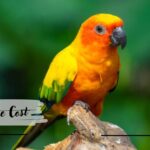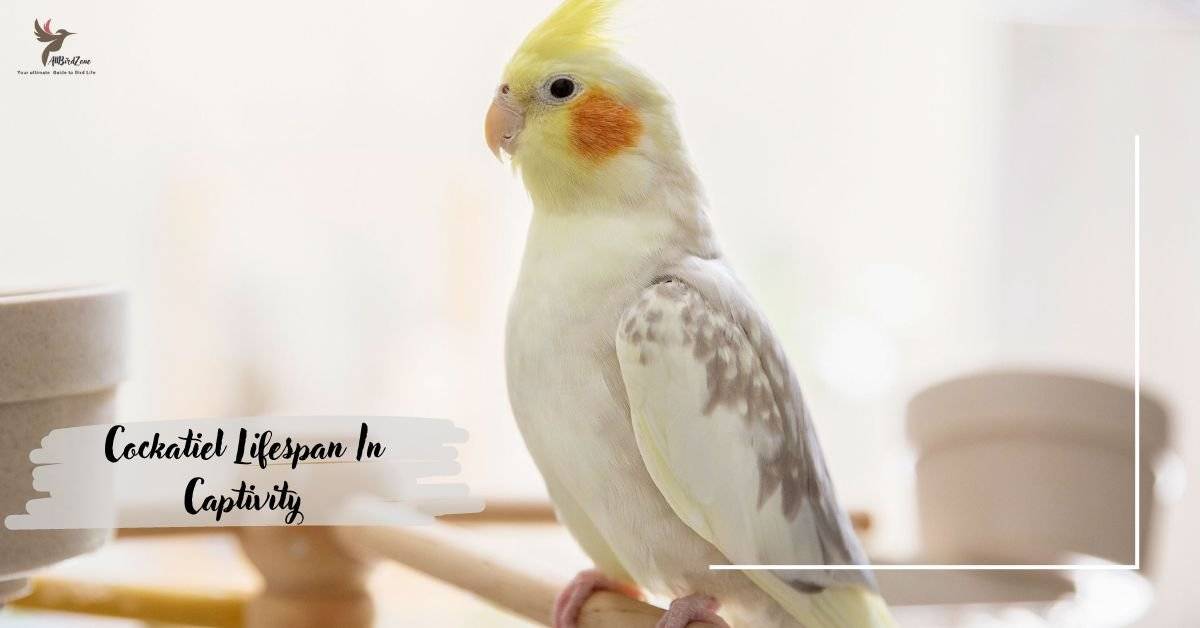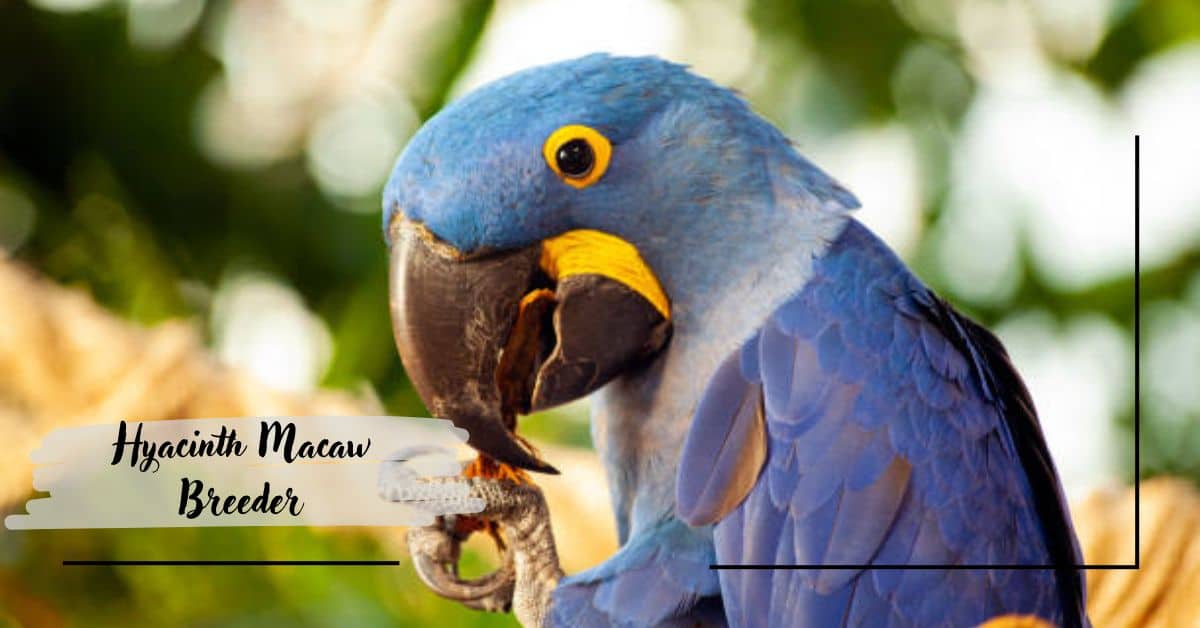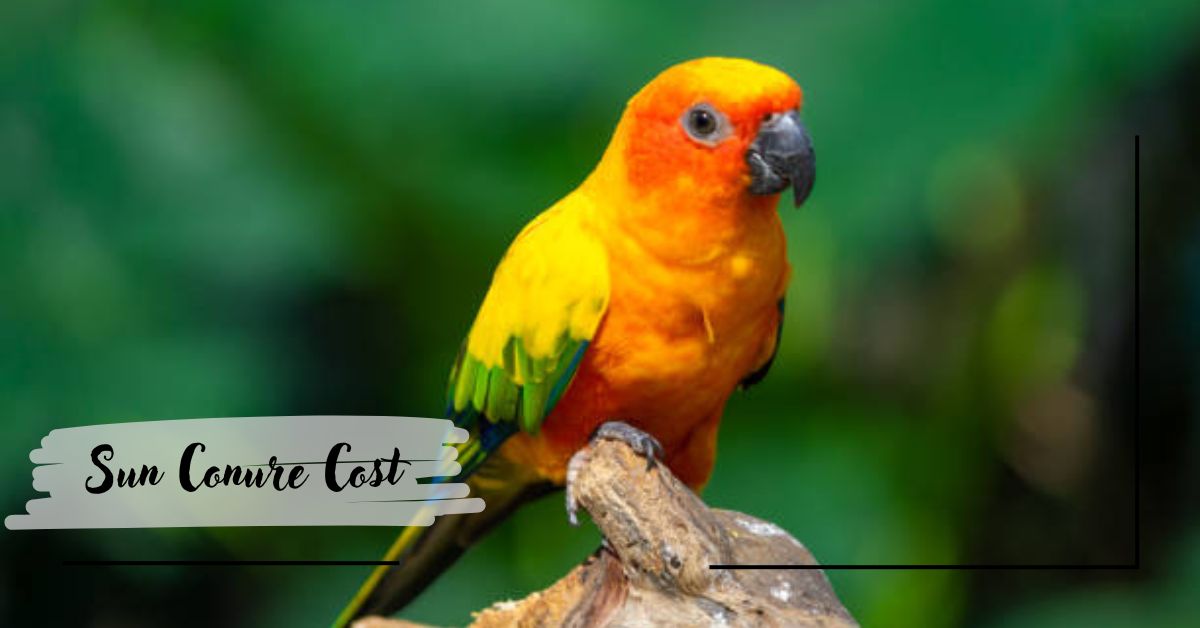What Is a Cockatiel?
A cockatiel (Nymphicus hollandicus) is a small, friendly parrot that originates from Australia. They are known for their unique crests, which are feathers on top of their heads that can express their mood. Cockatiels typically weigh around 80 grams and can grow to about 13 inches long. These birds are often gray with bright orange cheek patches, although many different color variations exist due to breeding. Cockatiels are social creatures that enjoy companionship, whether with other birds or their human owners. They are playful and can even learn to whistle and mimic sounds, making them entertaining pets for families. Their gentle nature and affectionate behavior make them a popular choice for pet owners.
Average Cockatiel Lifespan In Captivity:
Cockatiel Lifespan In Captivity typically live between 10 to 15 years. With exceptional care, some cockatiels can reach up to 20 years. Their longevity is influenced by their overall environment and the quality of care they receive. Providing a healthy diet, regular exercise, and mental stimulation can help them achieve their maximum lifespan.
What are the Factors Influencing Cockatiel Lifespan In Captivity?
Diet:
A well-balanced diet with high-quality pellets, fresh fruits, and vegetables is essential for maintaining good health.
Environment:
A clean, safe, and appropriately sized cage helps reduce stress and prevent disease.
Healthcare:
Regular veterinary check-ups are crucial to catch and treat any health issues early.
Exercise:
Regular physical activity and mental stimulation keep them fit and prevent obesity, which can lead to health problems.
Comparison with Lifespan in the Wild:
In the wild, cockatiels face various challenges such as predators, harsh weather, and limited food sources, which can shorten their lifespan to about 10 to 14 years. In captivity, with fewer threats and controlled conditions, they can live longer, often reaching up to 15-25 years. Captivity allows for better health management and protection from environmental dangers, contributing to their increased lifespan.
When Do Cockatiels Reach Their Full Lifespan?
Early Life Stages:
Cockatiels grow rapidly during their first year. They are considered fledglings until they are about 3 months old, after which they become juveniles. During this time, they develop their feathers and learn essential skills. Proper care during this stage is crucial for their long-term health and development.
Milestones in Lifespan:
- Young Adults (1-3 years): This is when cockatiels reach full maturity. They are active, and curious, and begin to display their full personality.
- Middle Age (4-10 years): Cockatiels are generally stable and in good health. Regular health checks and continued enrichment are important during this period.
- Senior Age (10+ years): Older cockatiels may experience age-related health issues. They may need adjustments in their diet and living conditions to maintain their health and comfort.
Aging and Senior Care:
As cockatiels get older, they might become less active, have changes in their feathers, or find it harder to move around. To keep them healthy and comfortable, older cockatiels need a special diet that helps with weight and joint health. Regular trips to the vet are important to check for common age-related issues like arthritis or vision problems. Making their living space cozy is also key, so use soft bedding and make sure they can easily reach their food and water to help with their mobility and overall comfort.
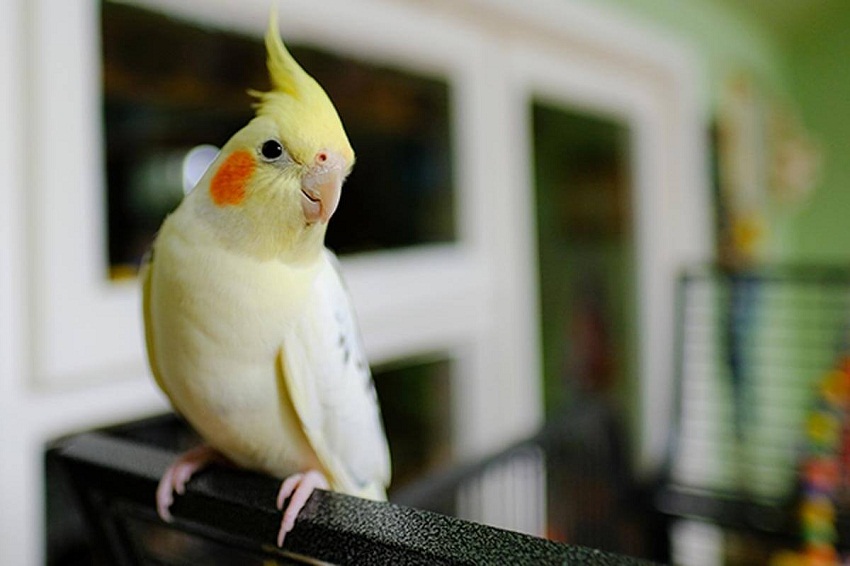
How Can You Extend a Cockatiel’s Lifespan? – Cockatiel Care!
Cockatiel Habitat:
Your cockatiel’s cage should be spacious enough for them to stretch their wings and move around comfortably. Make sure the cage is both tall and wide so they can fly a bit inside. Place the cage in a spot that is free from drafts to prevent illness. Also, keep the cage out of reach of other pets like dogs and cats to ensure your cockatiel’s safety.
Sunlight and Lighting:
Cockatiels need sunlight to stay healthy, as it helps them get vitamin D for strong bones and muscles. You can place their cage near a window to let them enjoy natural sunlight for a few hours each day. If sunlight isn’t available, a full-spectrum light bulb can also provide the necessary light.
Chew Toys and Enrichment:
Cockatiels love to chew, so provide them with nontoxic toys to keep them entertained. Avoid toys with hooks, sharp edges, or small parts that could be a choking hazard. You can also add tree branches from safe, pesticide-free sources to their cage for extra stimulation.
Cockatiel Diet:
In the wild, cockatiels eat a mix of plants, seeds, and sometimes insects. For a pet cockatiel, offer a variety of foods including seeds, fresh fruits, brown rice, scrambled eggs, corn, peas, peppers, and other vegetables. This variety helps ensure they get all the nutrients they need.
Daily Exercise and Training:
Cockatiels need regular exercise to stay fit and healthy. It’s good to give them about an hour of flight time in the morning and another hour in the afternoon. Wing clipping can help prevent them from flying too quickly and getting into trouble or escaping.
Mental Stimulation:
Cockatiels are intelligent and can be trained to do tricks like talking, whistling, or riding on your shoulder. Since they are curious, it’s important to keep doors and windows closed to prevent them from escaping and to keep dangerous items out of their reach.
Common Health Problems in Cockatiels:
Obesity:
Cockatiels can become overweight if they eat too many high-fat seeds and not enough balanced foods. Obesity can lead to other health problems.
Sneezing and Breathing Issues:
Cockatiels may develop respiratory problems from drafts, poor air quality, or infections. Watch for signs of sneezing or labored breathing.
Eye Issues:
Look out for any changes in their eyes, such as cloudiness or discharge, which can indicate health problems.
Zinc or Lead Poisoning:
Cockatiels are at risk if they chew on toys or cage parts made from metals like zinc or lead. This can cause serious health issues.
Incoordination:
Difficulty in movement or balance can be a sign of neurological or other health issues.
Intestinal Parasites:
These can affect digestion and overall health. Symptoms include weight loss and changes in droppings.
Malnutrition:
A poor diet can lead to various health problems, including vitamin deficiencies and weakened immune systems.
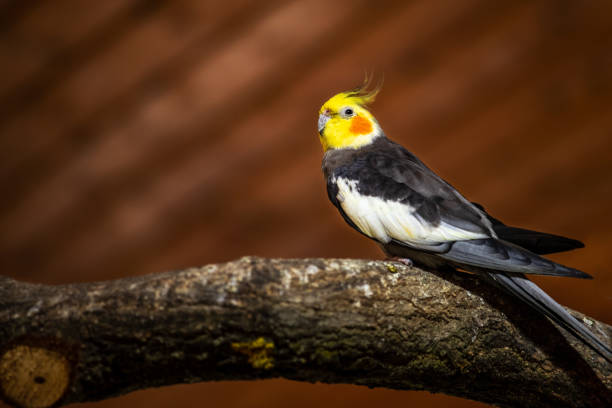
Signs of a Healthy Cockatiel:
- Dry and open nares: Their nostrils should be clean and dry.
- Smooth Beak: The beak should be free of cracks or abnormalities.
- Clear Eyes: Eyes should be bright and clear without any discharge.
- Erect and Alert Posture: They should sit upright and be active.
- Bright and Smooth Feathers: Feathers should be vibrant and not ragged or broken.
- No Lumps or Bumps: Their skin should be smooth without unusual growths.
- Even Feet Patterns: Feet should have normal reptilian patterns.
- Proper Nail Length: Nails should be trimmed to an appropriate length.
Common Asked Queries:
How often should I clean my cockatiel’s cage?
Clean your cockatiel’s cage at least once a week. Make sure to remove old food, change the bedding, and clean the perches and toys to keep everything fresh and hygienic.
What kind of toys do cockatiels like?
Cockatiels enjoy toys that they can chew, swing, and play with. Safe toys include wooden blocks, ropes, and bells. Avoid toys with small parts or sharp edges.
Can cockatiels be kept in pairs or groups?
Yes, cockatiels can be kept in pairs or small groups. They are social birds and often thrive when they have a companion. Just make sure the cage is large enough to accommodate multiple birds comfortably.
How can I tell if my cockatiel is sick?
Signs of illness in cockatiels include changes in eating or drinking habits, fluffed-up feathers, lethargy, or unusual droppings. If you notice any of these signs, consult a vet who specializes in birds.
Are cockatiels noisy?
Cockatiels can be noisy, especially when they are excited or trying to communicate. However, they are generally quieter than some other parrot species and can make pleasant whistling sounds.
Can cockatiels be trained to do tricks?
Yes, cockatiels are intelligent and can be trained to perform tricks, such as stepping up onto your hand, talking, or even playing simple games. Consistent, positive reinforcement helps in training them.
How much space does a cockatiel need?
Cockatiels need a spacious cage to move around comfortably. The cage should be large enough for them to stretch their wings and should have plenty of room for toys and perches.
What is the best diet for a cockatiel?
A balanced diet for a cockatiel includes high-quality pellets, fresh fruits, and vegetables. Avoid giving them too many seeds and make sure they always have access to fresh water.
Can cockatiels live outside?
Cockatiels are best kept indoors as they are sensitive to temperature changes and predators. If you do have an outdoor aviary, ensure it is secure, sheltered, and safe from extreme weather conditions.
How often should I take my cockatiel to the vet?
Regular check-ups are important. It’s a good idea to take your cockatiel to the vet at least once a year for a health check-up and to discuss any concerns you may have.
To Sum Up:
Understanding the lifespan of cockatiels in captivity helps ensure they live a long, happy life. By providing a balanced diet, proper care, and a safe environment, you can help your cockatiel thrive for up to 25 years or more. Regular vet check-ups and attention to their needs will go a long way in keeping your feathered friends healthy and content throughout their life.



